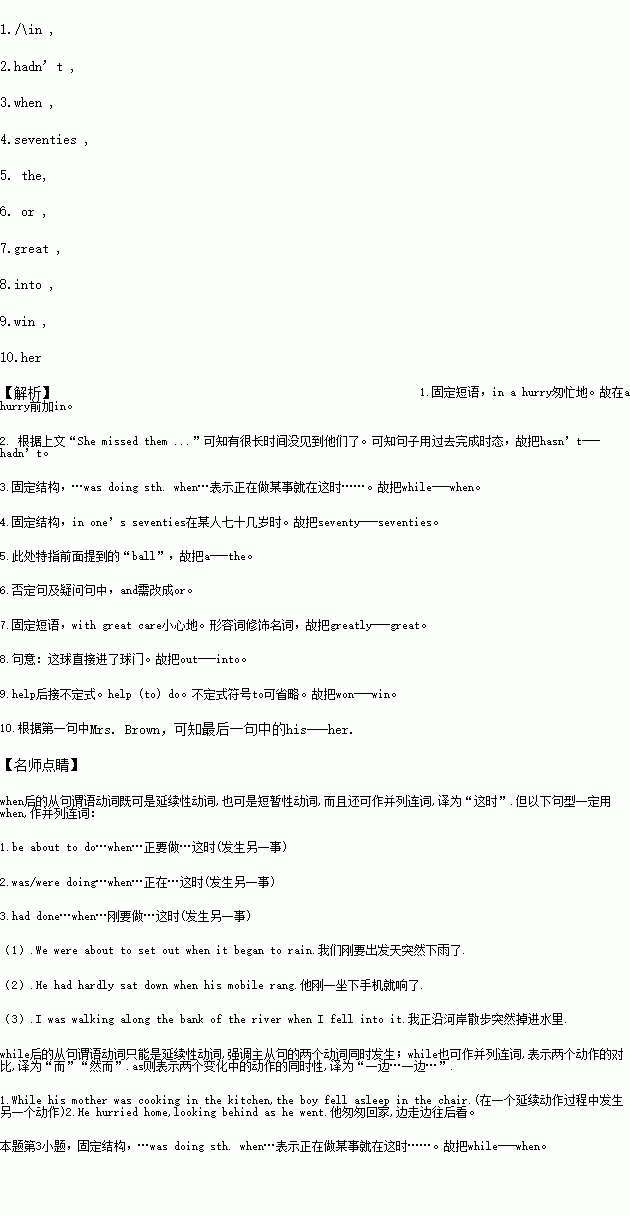题目内容
Mrs. Brown was walking near a playground. She was a hurry to visit her four grandchildren. She missed them very much, because she has’t seen them for quite a long time. She was walking while suddenly she saw a ball coming in her direction. She was already in her seventy. Should she kick a ball to send it back and should she just go past leaving the ball where it was? Finally with greatly care she gave it a kick. The ball went straight out the goal. How wonderful it was! And she happened to have helped won the match. And all his four grandchildren were on the team of the winners.
练习册系列答案
 智趣暑假温故知新系列答案
智趣暑假温故知新系列答案 英语小英雄天天默写系列答案
英语小英雄天天默写系列答案
相关题目

